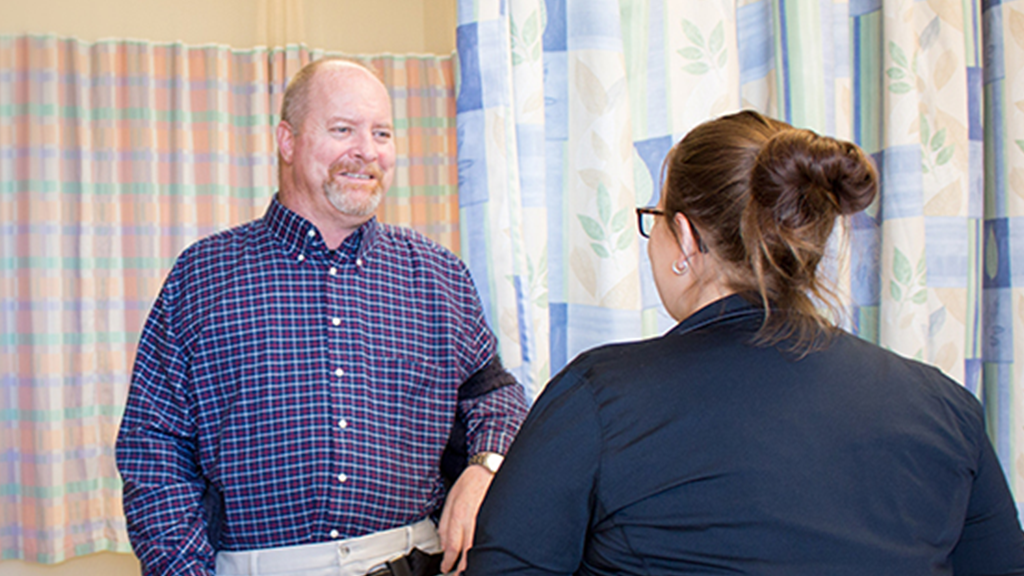Care and Cure are Equally Important in Healthcare

Back to physical health resource hub
October 22 through 28 is National Pastoral Care Week, and so I’d like to share a few words about chaplains and what we do.
The term “chaplain” originates from the Latin cappella, which means “little cape.” Go figure. The story dates back to 4th century France, where a Roman soldier was guarding the city gates. One frigid night he came across a beggar who was nearly dead from the cold. The soldier (later named St. Martin of Tours) cut off part of his coat for the man, leaving only a small cape for himself. That night he had a vision of Christ wearing the same piece he had given the old man. As the story spread, the soldier’s small cape was deemed a holy relic, so important that it was guarded by chosen men of the church called Cappellani, or chaplains. Over the next centuries, chaplains were assigned other significant duties within the church. Today you will find chaplains in a myriad of specialized roles, including the military, police and fire stations, businesses, prisons, colleges, hospitals, and even sports teams. Fun fact: The first recorded American chaplains were appointed by Congress in 1779, to support our soldiers during the Revolutionary War.
Depending on the setting, most chaplains are required to have master’s level degrees from a seminary and two years of clinical training for board certification. Beyond that, and as important, the learning comes from the experience. One never quite knows what the next experience will be. I have had sessions that involved deep end-of-life discussions, followed by 20 minutes of watching SpongeBob with a scared kid. You can’t help but learn from that. As with all of our disciplines, the care must be catered to the needs of that individual. This often requires creativity and thinking on your feet. For chaplains, this is foundational to providing what is known as pastoral care. You may have heard this term, but let me through a little more linguistic trivia your way.
In the term pastoral care, the first word of “pastor” comes from the Latin word pascere, meaning “to shepherd.” I like this word as a job description for chaplains, as well as the image of the shepherd himself (or herself). Unlike cowboys, who loudly drive their cattle, shepherds stay among their sheep, calmly tending to their needs. In ancient times their tools were a rod and staff – the staff being the curved stick used for pulling lost sheep close, and the rod being a club to beat off the predators. Psalm 23 in the Bible describes the shepherd’s job well.
The other word, “care,” is something with which we are all familiar. Care is an act done out of compassion that takes place in a moment of need. The “care” part of pastoral care refers to addressing the emotional and spiritual needs of the patient in a personalized manner. As a chaplain, this is important to remember, because the medical world is often focused on cure. While curing is indeed needed, caring is a process of recognizing a need and helping (as a Roman soldier giving a cold man part of his coat). And so, pastoral care is the role of the chaplain – meeting patients and others where they are, providing comfort through listening and addressing their needs, and ultimately fostering hope.
On a final note, I will say how much I appreciate working at Brooks Rehabilitation and the feeling of collegiality. Chaplains are part of the healthcare team, where holistic care includes spirituality and meaningful acts. My piece of this holistic picture is to be with patients as they struggle through illness, injury and hospitalization, and to remain close as they feel distanced from their regular lives. Ultimately it’s an honor to enter into the world of our patients, many of whom have lived events we can’t even imagine. I have worked in many settings, but being a chaplain at Brooks (17 years now) has been the most fun and fulfilling. Thank you for allowing me to be a part of this team.


